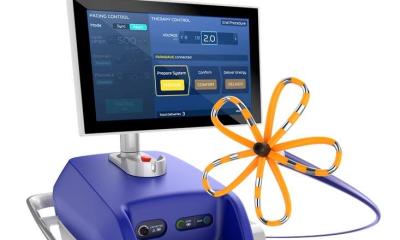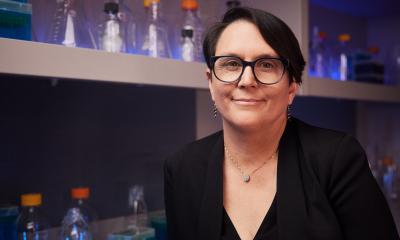News • Power of the heart
Gene therapy can make the heart stop atrial fibrillation itself
The heart is capable of terminating arrhythmias itself after local gene therapy, potentially avoiding the need for patients to undergo painful electric shocks, according to a proof-of-concept study presented today at EHRA 2018, a European Society of Cardiology congress.
Atrial fibrillation is the most common heart rhythm disorder (arrhythmia). Treatment aims to restore the heart’s normal rhythm and includes drugs, which are not effective in all patients, ablation, for which efficiency remains suboptimal in the long-term, and electric shocks, which are effective but painful and require hospitalisation. This leaves a large and growing group of patients without optimal treatment options. That is why study author Dr Emile Nyns, a physician and PhD candidate in the laboratory of Daniël Pijnappels at the Leiden University Medical Centre, Leiden, the Netherlands, took a completely different approach. He said: “As the heart itself is already electrically active, we tested whether and how it could generate the electrical current needed for arrhythmia termination.”
The quality of life and prognosis of AF patients could be significantly increased, especially for patients with frequent episodes of drug refractory, symptomatic atrial fibrillation, despite ablation therapy
Emile Nyns
The researchers used a technique called optogenetics, which uses light to control functioning of cells that have been genetically modified to express light-sensitive ion channels. First they genetically modified the right atrium in eight adult rats using a process called gene painting, which involves a small thoracic incision and actually painting the atrium with vectors coding for these ion channels. The researchers waited four to six weeks for the light-sensitive ion channels to be expressed, then made a small incision in the thorax of each rat and induced atrial fibrillation. Next they shone a light on the atrium for one second. This terminated 94% of atrial fibrillation. Dr Nyns said: “Shining light on the atrium opened the light-sensitive ion channels. This led to depolarisation of the atrium, which terminated atrial fibrillation and restored the heart’s normal rhythm. We only needed a single light pulse of one second to terminate nearly all arrhythmias. “The heart itself generated the electrical current needed to stop the arrhythmias,” he continued. “It is completely pain free, unlike electric shocks.” He said: “Our study provides proof-of-concept that the heart can be enabled to terminate atrial fibrillation by itself after optogenetic gene therapy.”
In future Dr Nyns envisages that the technique could be used in atrial fibrillation patients together with an implantable light-emitting diode (LED) device. “The result would be continuous, ambulatory and pain free maintenance of the heart’s normal rhythm, something that cannot be achieved today,” he said. “The quality of life and prognosis of AF patients could be significantly increased, especially for patients with frequent episodes of drug refractory, symptomatic atrial fibrillation, despite ablation therapy.” The researchers did not observe adverse effects from the method, but Dr Nyns said: “Further research is certainly needed before this technique can be used in patients. However, the results are promising and we believe that the time has come to develop the next generation of therapy for cardiac arrhythmias, which do not rely on pills or electronics, but on biology instead.”
Source: European Society of Cardiology (ESC)
19.03.2018











